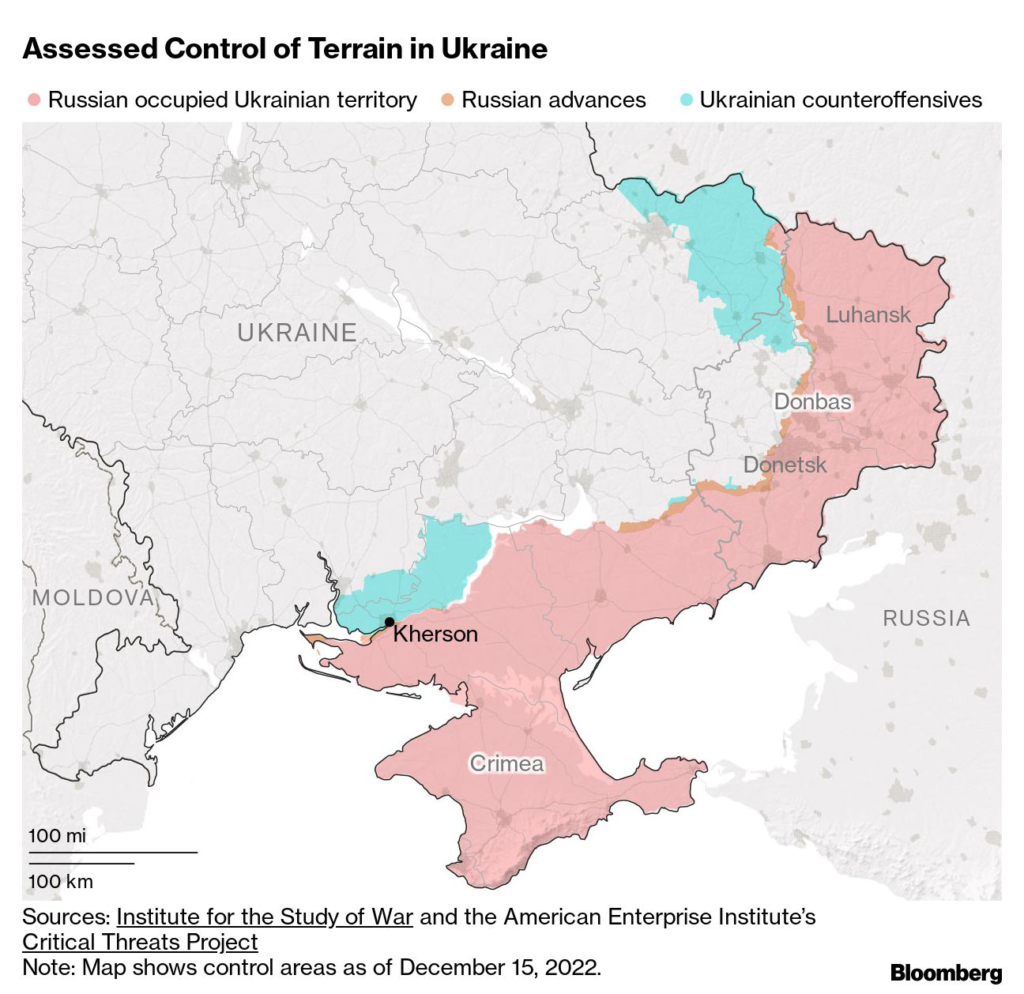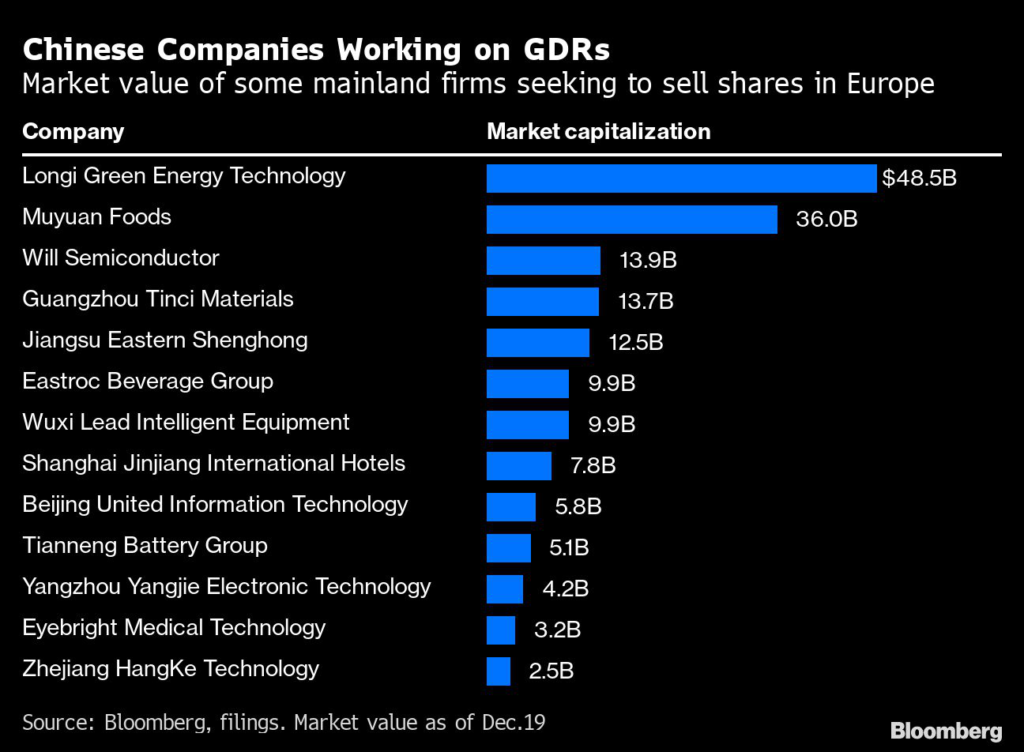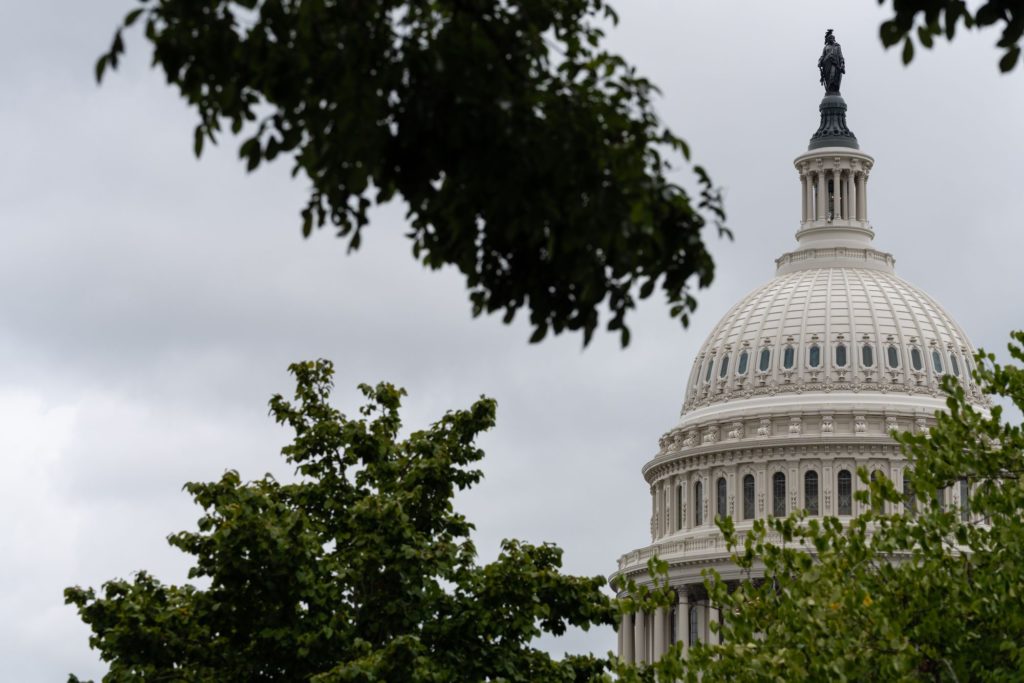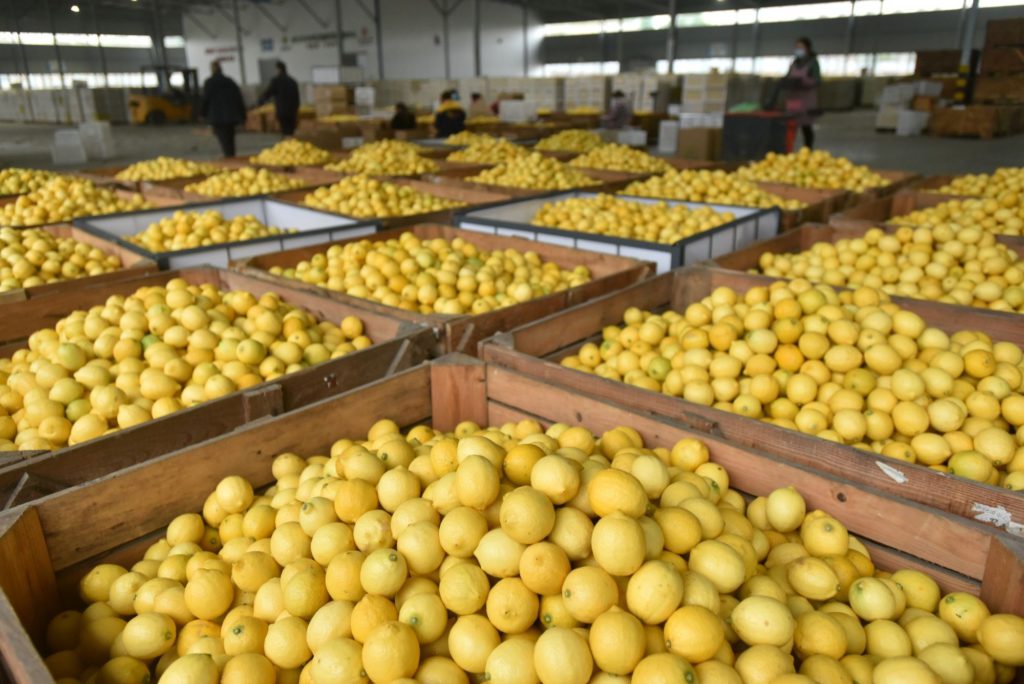Ukraine Latest: More Starlinks From Musk; Approval of IMF Aid
(Bloomberg) — Ukraine clinched a deal with Elon Musk’s Space Exploration Technologies Corp. to get thousands more Starlink antennas to help keep people on line amid Russia’s attacks on infrastructure, Mykhailo Fedorov, deputy prime minister and minister for digital transformation, said in an interview in Kyiv.
The International Monetary Fund, meanwhile, approved a new four-month program for Ukraine that doesn’t envisage lending money but could serve as a bridge to a multi-billion-dollar loan package if successful.
(See RSAN on the Bloomberg Terminal for the Russian Sanctions Dashboard.)
Key Developments
- Ukraine to Get Thousands More Starlink Antennas, Minister Says
- Putin Says Russia-Belarus Drills to Go On as Ally Hints on Arms
- EU Agrees to Cap Gas Prices at €180 Temporarily to Ease Crisis
- Canada to Pursue $26 Million in Assets From Russia’s Abramovich
On the Ground
Russian forces launched four missile attacks, 60 air strikes and more than 80 salvos from multiple-launch rocket systems over the past day, Ukraine’s General Staff said on Facebook. Ukrainian troops repelled attacks near 10 settlements in the Luhansk and Donetsk regions, including Bakhmut, according to the statement.
(All times CET)
More Than Half of Kyiv Has Power Problems, Ukrenergo Says (11:30 a.m.)
Less than half of power demand in Kyiv city is being met on Tuesday following Russian drone attacks, national grid operator Ukrenerego said on Telegram.
City authorities are prioritizing the supply of electricity to key infrastructure as the country’s energy system continues to experience a significant power deficit, Ukrenergo said.
Putin Says Situation in Southeastern Ukraine ‘Extremely Difficult’ (11:15 a.m.)
President Vladimir Putin said the situation in southeastern Ukrainian regions occupied by Russia is “extremely difficult,” following Ukraine’s success in wresting back control of an increasing part of this territory.
Putin referred to Donetsk, Luhansk, Zaporozhzhia and Kherson as “new regions of Russia,” in a video address on Tuesday marking a holiday dedicated to the country’s security agencies.
Russia annexed the four provinces in September but has been steadily losing ground there in the face of a Ukrainian counter-offensive. Last month Russia withdrew from Kherson City, the only regional capital it controlled since invading Ukraine 10 months ago.
Ukraine to Get More Starlink Antennas (8 a.m.)
“SpaceX and Musk quickly react to problems and help us,” Fedorov said in the interview, adding that he spoke directly with Musk. “Musk assured us he will continue to support Ukraine. When we had a powerful blackout, I messaged him on that day and he momentarily reacted and has already delivered some steps. He understands the situation.”
More than 10,000 devices, which provide internet service beamed down from satellites, will be sent to Ukraine, according to Fedorov.
Starlink played an important early role in the war, as Russia’s military focused on destroying communications. But Musk, SpaceX’s chief executive officer, drew the wrath of Ukrainians in October when he tweeted that Kyiv should remain neutral — an apparent suggestion that it not join military alliances like NATO — and should cede territory to Russia in exchange for a peace deal.
Kyiv Has Significant Power Cuts, Mayor Says (7:41 a.m.)
Periods of power cuts will be extended in the capital, Mayor Vitali Klitschko said on Telegram. There is enough power to supply critical facilities and about 20% of residents.
The oldest line of Kyiv’s subway network was partially closed for passengers due to a voltage drop, the subway operator said on Telegram. Two other lines resumed operation.
Ukraine Gets IMF Nod for Non-Cash Program (1:21 a.m.)
The IMF executive board discussed so-called program monitoring with board involvement, or PMB, for the war-torn nation on Monday, the Washington-based lender said on its website.
The PMB “is tailored to Ukraine’s exceptional circumstances,” and helps the nation’s government implement prudent policies and catalyze donor financing,” IMF First Deputy Managing Director Gita Gopinath said.
More stories like this are available on bloomberg.com
©2022 Bloomberg L.P.










